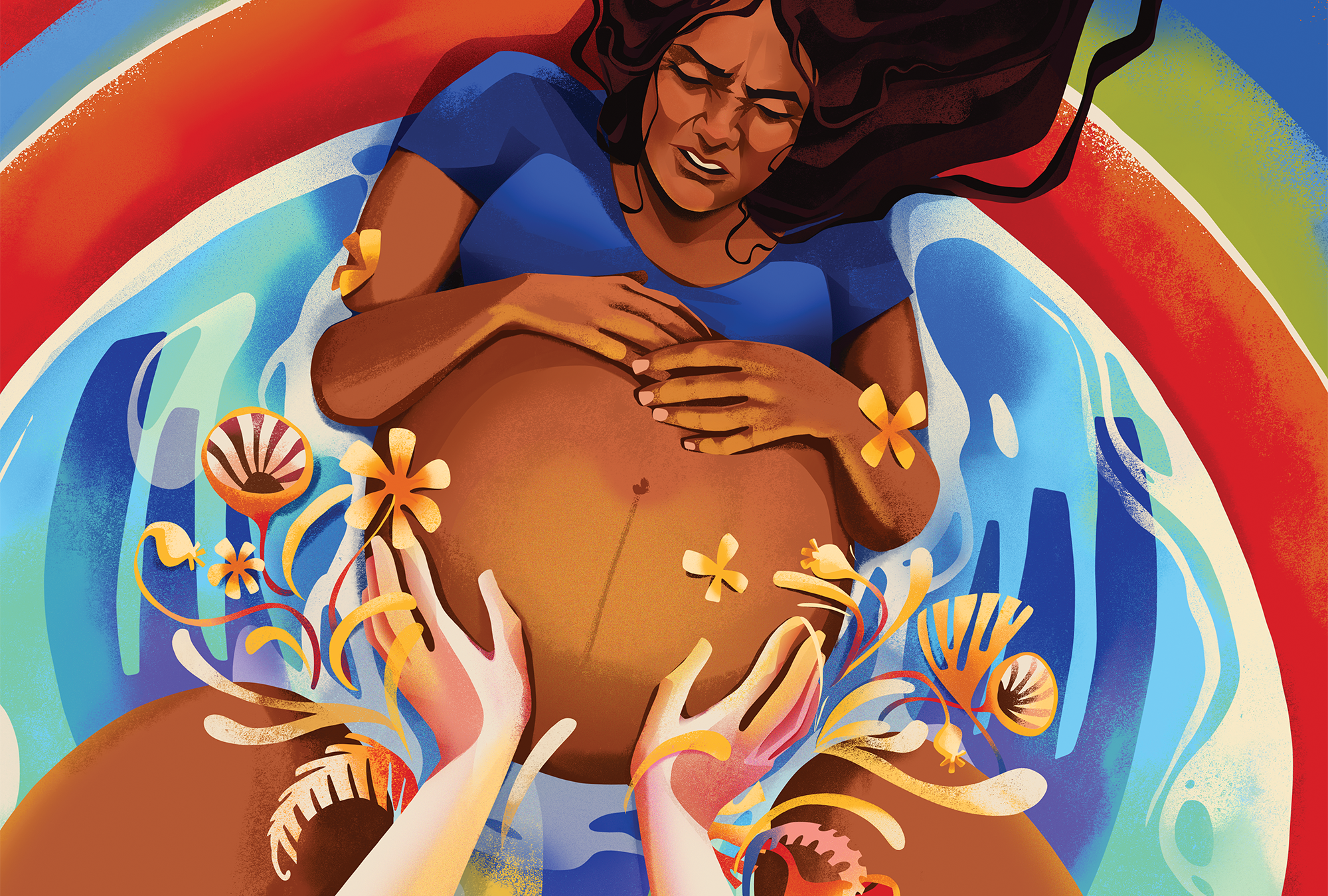
Illustration by Thiago Limón
Do We Dare Beg for the Birth of the Christ Child?
A LOT OF BEGGING happens at Christmas. There are pleas in the toy aisle and hints left open on laptops. But no one begs to be in labor. Not even a woman who is pregnant. Unless, of course, she is at the bitter end of her pregnancy.
In the language of King James, Luke tells us that Mary is not just pregnant, but she is “great with child” (Luke 2:5). She is on the cusp of birthing, of being the first one to slide her hands up under the armpits of the warm, slippery flesh of God. No one before or after will have God in quite this way.
In Mary, the Word became flesh and was born in the most mundane, most primal human act. This flesh must count for something. The extremely pregnant body of Mary — great with child — reveals the nature of our waiting for Christ and what it might mean to cry out for Jesus’ coming.
As a midwife, I have delivered more than 1,300 babies, and I have given birth three times myself. But you don’t need a midwife or someone who has had a baby to tell you about the discomforts of pregnancy. Nausea, headaches, food aversions, and swelling are common enough knowledge. As unpleasant as these symptoms are, they aren’t enough to make anyone beg for labor. For most of a pregnancy, the woman is largely herself and retains her sense of self.
So, if I told someone who’s 32 weeks pregnant that she had to go into labor tomorrow she would be utterly unwilling. That her baby would easily survive the labor does not change this fact. You don’t need a midwife to tell you why she might not want to labor. No one wants the searing pain of contractions, pushing, or tearing. To be in labor is to be completely beyond yourself, given over wholly to another, and the pain of its outworking.
We know, or suspect that we know, the gravity of the transformation a pregnant woman is about to endure. And we want to help her, we do. We want to come alongside her and acknowledge and aid her work. But our culture fails us. “Birthing classes,” though helpful, are as inadequate as “dying classes” would be — there is no way to simulate or teach the courage required of a soul in extremis. The closest thing we have to a rite of passage for initiating a woman into motherhood is the baby shower. Onesies and party games do not prepare someone for the maelstrom of birthing and raising a child.
Read the Full Article

Got something to say about what you're reading? We value your feedback!


